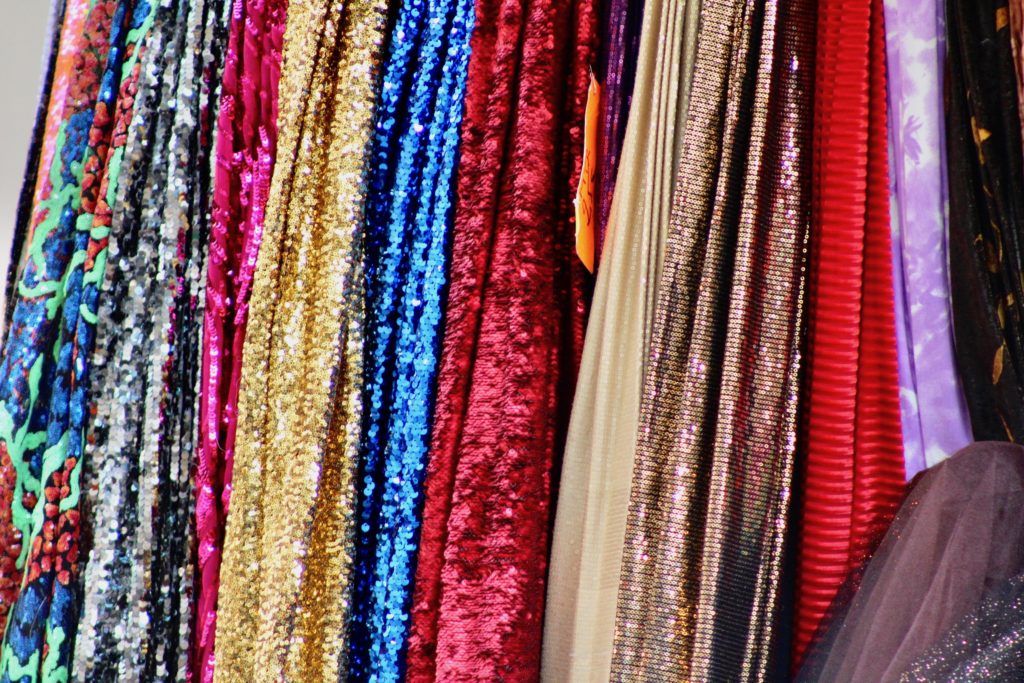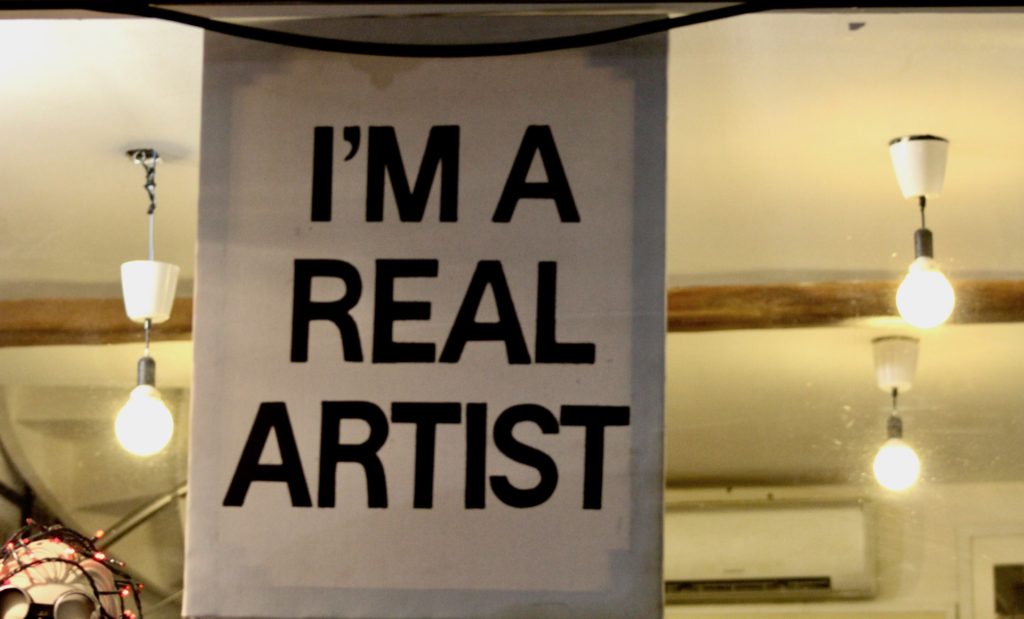By Yaldaz Sadakova

It was Saturday night. I was at home, in a new city and a new country.
My Toronto apartment felt empty and lonely. My plans to go out had been cancelled.
I made some coffee—mostly out of boredom; I didn’t need the caffeine this late—and sat in my white armchair.
Out of nowhere, I had the urge to start writing a novel.
It was as if a stranger had just entered my mind, and she was giving me orders. She wanted me to start writing at that particular moment.
I had dreamed of writing a novel one day.
But I’d always imagined it would be something planned. Something I’d start doing after securing an agent or a book deal.
I had none of those things. But the urge was powerful, and I had nothing better to do. I opened my laptop.
I decided the novel would be set in Brussels, the city I’d lived in before moving to Toronto.
I also decided this novel was going to be about immigration. There was so much I wanted to say about that topic.
I’d been an immigrant for years.
I’d dealt with immigration bureaucracy in different countries.
I’d seen my biggest career dreams crushed by rigid visa rules.
I’d visited a detention center for undocumented migrants.
Seeing people there locked up in prison-like conditions—the way you lock up rapists or murderers—simply because they’d crossed a border without papers further convinced me how unjust borders are.
I started typing. I recounted an event which had happened to me in Brussels, something I’d never told anyone about. Then another one and another one.
These were life-changing experiences I hadn’t processed, things I’d been dying to express.
I wrote three chapters that night, about 3,000 words.
Everything I wrote was true. But, I figured, when I start revising it, I’d make some changes to make it fictional.
I was writing in English, my dominant language.
It was the only language I’d written in since graduating from high school 12 years earlier.
It would have never occurred to me to start writing this novel, or anything else, in my native Bulgarian.
Bulgarian is technically not my first language. But because I was schooled and immersed in it while growing up in Bulgaria, I consider it my de facto native language, my step-mother tongue.
My mother tongue is Turkish, and I’ve largely forgotten it.
Plus, the immigration story I wanted to tell had happened to me in English.
Even if it was going to be fictional, it would still be inspired by real-life English-language experiences.
Writing it in Bulgarian—and, therefore, through a Bulgarian lens—would have been unnatural.
And more difficult: life abroad had caused my Bulgarian to deteriorate.
I knew this novel might not get published. The writing itself, responding to the creative urge, was going to be the reward.
So, as the weeks went by, I kept writing.
Soon, I was no longer writing 100 percent fact. I made up certain things as I went along.
It felt liberating, as if I was rewriting my life.
The main character was no longer me. She morphed into her own distinct person, somebody I enjoyed getting to know.
I worked on my novel at night, after coming home from my magazine job.
Some nights I wrote for as little as 20 minutes. Other nights I couldn’t write at all because I was too tired.
But most nights I had no trouble writing. I didn’t have to exercise self-discipline. It didn’t feel like a chore.
I enjoyed immersing myself in a fantasy world, a world I was creating, after a day of writing about hard-core financial topics.
I also loved the therapeutic effect of getting painful things off my chest.
A couple of months after I started writing, I heard a disturbing news segment on the BBC about statelessness.
I was in the middle of putting on make-up and getting ready for work.
When the radio segment came on, I put down the foundation jar and turned away from the mirror.
I wanted to give the story my full attention. I had never heard of statelessness before.
What I learned shocked me. Being stateless means you have no nationality, so you’re undocumented in every single country, including the one you were born in.
You can become stateless for many reasons—for example, when your country of birth, say, the Soviet Union or Sudan, disappears or splits up, and you can’t secure identification documents from the successor states.
When the segment ended, I decided my main character should be stateless.
Now I needed a different plot. I had to create different obstacles for my character. I had to make her obtain a fake passport. I had to make her interact with criminals.
And I had to change the backstory. I had to figure out why she was stateless.
Shadow Artist
A few months later, I started reading The Artist’s Way by Julia Cameron.
The part of the book which struck me the most was the shadow artist concept.
A shadow artist is someone who’s afraid of doing creative work.
Cameron says shadow artists go through life unhappy, feeling like they have failed to fulfill their potential.
“They want to write. They want to paint. They want to act, make music, dance…but they are afraid to take themselves seriously,” she writes.
“Intended fiction writers often go into newspapering or advertising, where they can use their gift without taking the plunge into their dreamed-of fiction-writing career. Intended artists may become artist managers.”
I wanted to be a journalist. So, for me, working in journalism was not a way to stay in the shadows.
Yet, I felt like a shadow artist.
After all, journalism isn’t a creative field. News writing is a form of technical writing.
It’s not about letting the words flow or letting your imagination go wild.
While I spent years doing that and trying to build my journalism career, I’d neglected my creative writing dreams.
The only exception were the occasional unpublished short stories I’d written.

Borrowed Voice
While I was working on the first draft of my novel, I discovered with horror that I could only write in that dispassionate matter-of-fact convoluted news style I’d been using for years.
It’s a style made up of clichés like “amid growing concerns,” “in what has increasingly become,” “which has a growing number of people worried” and so on.
My novel was filled with those kinds of phrases.
I was also using many em dashes, loading the middle of my sentences with so much information that their structure threatened to collapse.
Like this: the man—who sold fake passports because he had no other way to support himself, and let me see how many other details I can cram between these two dashes, and shit, now you have to reread the sentence because you forgot what it was about—entered the room.
When you express yourself in that news voice, your prose sounds impersonal, like it could have been written by anyone.
That news voice was not my voice. It was a borrowed voice.
But I didn’t know how to silence it. I didn’t know a different way to write.
So I followed Cameron’s advice from The Artist’s Way.
“Be willing to paint or write badly while your ego yelps resistance. Your bad writing may be the syntactical breakdown necessary for a shift in your style.”
I kept writing in that borrowed news voice. I wanted to finish my novel.
Learning the News Lingo
I started studying English in second grade in Bulgaria. I only learned the basics at that time.
I found English challenging. Its grammar and spelling felt so different from my first two languages, Turkish and Bulgarian.
Also, the teacher was not supportive.
After a year, I stopped studying it.
I started studying it again, this time intensively, when I was 12.
Now it felt easier because I knew the basics. And because my new teachers were supportive. I made lots of progress.
Still, I wasn’t immersed in the language because I was learning it in Bulgaria.
At 19, I enrolled at the American University in Bulgaria (AUBG), where the instruction was in English. That helped a lot.
Even during my first year in undergrad, I knew I wanted to write fiction.
But, I figured, it might be hard to make a living as a fiction writer, so why don’t I go into journalism instead?
I’d become fascinated with journalism back in high school, although at that time my understanding of it was very romanticized.
In my sophomore year, I started taking journalism classes and working for the college news publication.
I fell in love with journalism. I liked every aspect of it.
Meeting people from all walks of life. Learning things I would have never learned otherwise. Doing a public service.
And, of course, I loved the writing part, especially the fact that I was learning how to be a disciplined writer.
You never hear journalists complain about writer’s block or lack of inspiration. News deadlines are so quick that there’s no time for that.
I wanted to be the best journalist I could be. And I wanted to do that work outside of Bulgaria so I could experience the rest of the world.
To get there, I had to master the English news lingo.
So I paid close attention to all the edits I received in response to my stories for my journalism classes and for the campus publication.
I took note every time my editors flagged awkward phrasing, subjective language and redundant words.
Every day, I read tons of New York Times stories. Whenever I spotted neat phrases, I’d memorize them or write them down so I could use them in my next story.
I loved how using the news lingo made me sound legit. And how it meant fewer edits when I submitted journalism assignments.
Native Speaker Bias
After AUBG, I went to journalism school in New York. Then I worked at a newspaper in Queens.
Afterwards, I moved to Brussels and then Toronto, where I continued to work in English-language media.
With all my journalism jobs, I felt the pressure to prove myself.
To prove that despite my accent, my command of English and the news style was comparable to that of a native speaker.
Although my accent was light, I felt self-conscious about it because I knew accent can be wrongly equated with language proficiency.
And, of course, I was aware of the bias against non-native speakers in media, publishing and communications.
I often saw writing and editing job ads which asked for native speakers only or expressed a preference for them.

I also felt self-conscious when I edited the writing of native speakers, especially when I had to correct their grammar.
I found that many of these writers didn’t know the difference between “your” and “you’re,” “it’s” and “its,” “fewer” and “less.”
Dangling modifiers and run-on sentences were also a common problem in their writing.
Every time I corrected mistakes like that, I had the irrational fear that the writers would come back and say: “How dare you correct my grammar! You’re not a native speaker; how can you possibly know English grammar better than me?”
Of course, that never happened. No writer or editor questioned my command of English.
But the need to prove myself never went away.
To this day, I obsessively proofread every single thing I write. Articles, blog posts, emails.
Even social media posts. When a native speaker writes social media posts riddled with typos and sloppy punctuation, the assumption is that they didn’t have time to self-edit.
Plus, it’s no big deal because it’s social media.
Nobody questions their command of English or their writing skills. Their carelessness doesn’t harm their job prospects.
I constantly see sloppy social media writers who are native speakers land coveted editing and writing gigs.
But if someone like me writes posts with typos and bad punctuation, the assumption might be that my English isn’t good enough because I’m not a native speaker.
And, therefore, my writing and editing skills might not be on a par.
Finding My Creative Voice
In 2016, more than two years after I started writing my novel, I quit my magazine job.
I needed a more flexible schedule so I could focus on my creative writing and do some freelancing.
I finished my novel and set it aside in order to revise it later.
Then I started working on what has now become Foreignish.
Before I launched Foreignish, I wrote the drafts of several memoir stories.
They were about immigration issues which had bothered me for years, but I’d never had the time and mental space to examine them.
After I started Foreignish, I took a memoir course, and I finally learned how to silence the news voice when I need to.
One of the rules in class was not to hedge every single sentence with wishy-washy phrases like “possibly,” “presumably,” “allegedly” and “what appears to be”—as is typical with news writing.
Another rule was to embrace the first person.
It sounds simple, but for some people it’s difficult, especially if they work in academia or similar fields, the teacher explained.
“So they’ll resort to using ‘you’ or ‘one.’ ‘One wonders what would happen if one leaves the relationship,’ ” she said, over-articulating her words for dramatic effect.
I laughed. Her example hit home because journalism is also a field where the first person is frowned upon.
Injecting yourself in the story is considered the pinnacle of narcissism.
Another rule in class was to abandon objectivity, to make our stories all about ourselves and our truth.
And it was fine if our truth and interpretation of events didn’t match others’ interpretation.
Because in memoir writing, while you can’t alter any facts, you don’t have to address the arguments of the other side and to ensure that what you say is objective.
I loved that freedom.
For the first time, I was receiving formal permission to turn inwards with my writing, to figure out my truth and to state it bluntly without worrying if it’s objective.
For the first time, I was being told that writing about myself is not narcissistic but necessary.
After the course ended, I revised the memoir stories sitting in my computer, and I published them on Foreignish.
Then I wrote some new memoir pieces.
While I did all that memoir writing—all that examination of unprocessed inner stuff—I started to identify and name feelings I hadn’t paid attention to.
I started to discover my personal creative voice.
And with each story, it became easier to express myself in that voice.
I discovered that voice is opinionated, effusive, passionate, introspective, casual, vulnerable, angry, righteous.
The adjectives which described my personality now described my writing style, too.
Translingual Accomplishment
I realize I shouldn’t be preoccupied with style because style is just a by-product of substance, of trying to express yourself candidly.
Style is superficial, but I still think a lot about it.
It’s because I’ve had to find my voice and do creative writing in a foreign language, a language I’ve learned through mechanics and obsession with detail.
So I sometimes wonder whether finding your creative voice in a foreign language is a bigger achievement than finding it in a language you’ve been immersed in since you were born.
I think it is.
I don’t want to downplay the accomplishments of creative writers who write in their first language.
Still, I think it’s a bigger achievement.
Not necessarily a bigger artistic achievement.
Although you could argue that the cultural and intellectual enrichment which comes with knowing at least one other language naturally informs your writing.
You have more to play with than a monolingual writer.
That aside, being a translingual writer is definitely a bigger linguistic achievement.
Because it means you had to work harder.
You had to invest years in order to learn another language and achieve a level of mastery in that language similar to the level of someone who’s been using it all along.
It’s like trying to reach level 10, where the person who writes in their native language starts from zero while the one who does it in a foreign language starts from minus 10.
Yet, I’ve never given myself credit for that. ♦
ALSO READ

